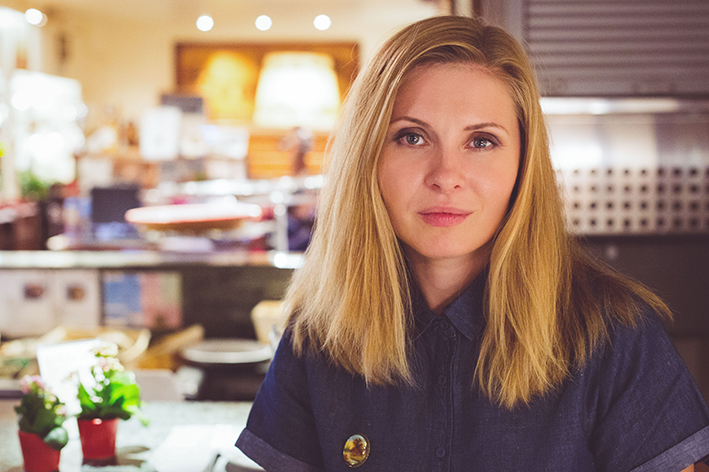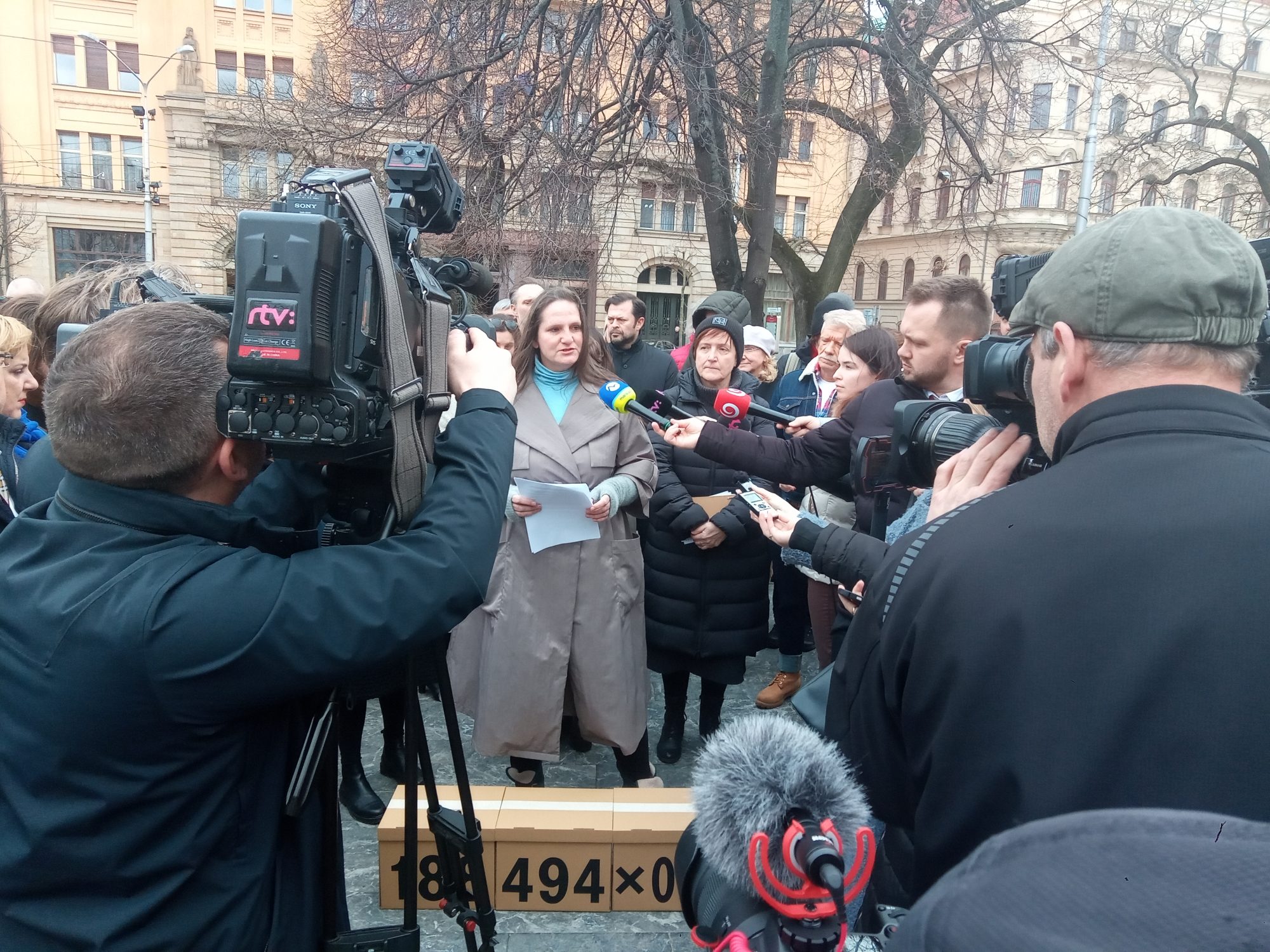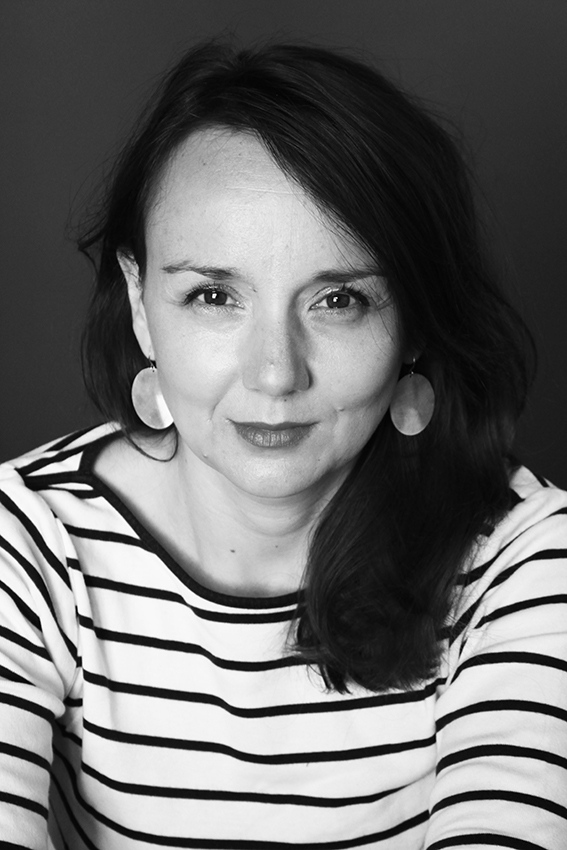188 494
Snažila som sa urobiť túto neprofesionálnu fotografiu tak, že som sa s mobilom zamiešala medzi televízne štáby a fotografov z kľúčových denníkov a médií.
Je 5. februára 2024. Nachádzame sa v Bratislave pred Ministerstvom kultúry Slovenskej republiky. Dáma, ktorá dáva rozhovor, v predchádzajúcich rokoch vypracovala pre Ministerstvo kultúry novú Stratégiu kultúry a kreatívneho priemyslu 2030. Vedľa nej stojí významná slovenská vizuálna umelkyňa, iniciátorka otvorenej výzvy na odstúpenie novej Ministerky kultúry, pod ktorú sa na stránke Peticie.sk podpísalo 188 494 ľudí.
V krabiciach pri ich nohách sú hárky s overenými podpismi. Číslo 188 494 si už teraz viete domyslieť.
Okolo nich je menší dav umelcov a ľudí pracujúcich v kultúre. Sprevádzame iniciátorky výzvy na podateľňu Ministerstva kultúry.
Stretávam priateľov. Zažívam flashbacky. Počas nášho profesionálneho života sme sa pred ministerstvom kultúry stretli už niekoľko krát.
Aktuálne dôvody sú najvážnejšie. Vyjadrenia novej ministerky kultúry majú príliš veľa prienikov s agendou krajnej pravice, má mocenské zámery v doteraz nezávislých kultúrnych inštitúciách a umeleckých fondoch, presadzuje radikálnu zmenu kontinuity, napríklad v rozpracovanej stratégii kultúry.
Ako čítať číslo 188 494 v slovenskom kontexte? Je to číslo vysoko presahujúce akúkoľvek občiansku iniciatívu tohoto typu. Je to viac ako počet hlasov, s ktorými sa Slovenská národná strana, za ktorú ministerka kandidovala, dostala do parlamentu. Im patrí číslo 166 955. S týmito hlasmi sa SNS stala parlamentnou stranou len tesne a vďaka účasti vo vládnej koalícii získala najmenej podstatné ministerstvo, Ministerstvo kultúry.
Za ministerku vo voľbách hlasovalo 27 615 ľudí, krátko po voľbách sa našlo 188 494, ktorí hlasovali proti.
Nie že by scéna, ktorú zastupuje, bola na Slovensku taká malá. V posledných voľbách sme mali šťastie, že bola roztrieštená. A aj tak!
V prípade krajnej pravice aj malé čísla stačia na veľkú deštrukciu.
188 494
Für dieses Foto stelle ich mich mit meinem Smartphone unter die Fernsehteams und Fotografen der wichtigsten Landesmedien.
Wir schreiben den 5. Februar 2024 und befinden uns vor dem Kulturministerium der Slowakischen Republik in Bratislava. Die Frau, die in die Mikrophone spricht, hat in den letzten Jahren eine neue Entwicklungsstrategie für die Kultur- und Kreativindustrie 2030 erarbeitet. Neben ihr steht eine bedeutende bildende Künstlerin, die eine Petition für den Rücktritt der neuen Kulturministerin initiiert hat. Diese Petition wurde auf der Plattform Peticie.sk von 188 494 Menschen unterzeichnet.
In den Kartons zu ihren Füßen liegen die Bögen mit beglaubigten Unterschriften. Die Zahl 188 494 lässt sich jetzt wohl besser einordnen.
Die beiden Frauen sind von einem Grüppchen Künstler und Kulturschaffende umgeben. Wir begleiten die Initiatorinnen der Petition zur Annahmestelle des Kulturministeriums.
Ich begegne alten Freunden. Erlebe einen Flashback nach dem anderen. Während unseres professionellen Lebens haben wir uns schon oft vor dem Kulturministerium getroffen.
Die aktuellen Gründe sind die wichtigsten. Die neue Kulturministerin überschneidet sich in ihren Äußerungen viel zu stark mit der Agenda der extremen Rechten, sie stellt Ansprüche auf die bisher unabhängigen Kulturinstitutionen und Künstlerfonds, setzt eine radikale Änderung der Kontinuität durch, zum Beispiel in der eben erwähnten Kulturstrategie.
Wie die Zahl 188 494 im slowakischen Kontext zu lesen ist? Als eine Zahl, die alle bürgerlichen Initiativen dieser Art bei Weitem übersteigt. Sie geht über die Zahl der Stimmen hinaus, mit denen die Slowakische Nationalpartei (Slovenská národná strana, SNS), für die die Ministerin angetreten war, ins Parlament kam. Das war die Zahl 166 955. Mit diesen Stimmen ist die SNS nur knapp ins Parlament eingezogen und wurde für ihre Teilnahme an der Regierungskoalition mit dem unbedeutendsten Ministerium entlohnt, mit dem Kulturministerium.
Die Ministerin wurde mit 27 615 Stimmen gewählt, kurz nach der Wahl stimmen 188 494 Menschen gegen sie.
Nicht dass die Szene, für die sie angetreten war, in der Slowakei so klein wäre. Wir hatten das Glück, dass sich die rechten Parteien nicht einigen konnten. Und trotzdem!
Auch mit wenigen Stimmen kann die extreme Rechte eine Menge kaputt machen.
Übersetzung: Eva Profousová
188,494
This is an amateur photo I took on my mobile, sneaking in among TV crews and photographers from key newpapers and media.
The date is February 5, 2024. We are in Bratislava, outside the Ministry of Culture of the Slovak Republic. The woman being interviewed is the author of the new Strategy for the arts and creative industry for the period to 2030, which she drafted for the Ministry a few years ago. Standing next to her is a leading Slovak visual artist, initiator of a public appeal calling for the resignation of the new Minister of Culture, signed by 188,494 people on the website Peticie.sk. The boxes at their feet contain sheets of verified signatures. You don’t need me to tell you that the number of the sheets is 188,494.
The two women are surrounded by a small crowd of artists and people working in the arts. We have come to support the petition‘s organisers who are about to formally hand over the sheets of signatures to the Ministry of Culture.
I bump into friends. I experience flashbacks. This is not the first time in our professional lives that we have met outside this ministry.
This time we have more reasons for alarm than ever before. Statements by the new Minister of Culture bear worrying similarities to the agenda of the extreme right, laying bare her power-grabbing ambition to control cultural institutions and arts funding agencies, which have enjoyed independence in recent years. She is spearheading a change of course that is certain to disrupt continuity of the strategy for the arts.
What does the figure of 188,494 tell us in the context of Slovakia? It is a figure that far exceeds any previous civic initiative of this kind. It is higher than the number of votes which secured parliamentary seats for the Slovak National Party, on whose ticket the minister was elected in last year‘s general election. That number was 166,955. That is how many votes the party garnered, which enabled it to scrape into parliament and, as a junior member of the ruling coalition, to be entrusted with the ministry seen as least important, the Ministry of Culture.
The Minister herself received 27,615 votes. Only a few months after the election 188,494 people have voted against her.
This is not to say that the segment of the electorate she represents is neglible. However, luckily for us, in this election it was fragmented. But it’s bad enough even so.
When it comes to the extreme right even small numbers can wreak a great deal of havoc.
Translation: Julia Sherwood
Teilen
-
04 Montag
19:30 UhrSouvenir: Katarína Kucbelová und Tatiana Țîbuleac
Die Autor∙innen mit ihren Übersetzer∙innen Eva Profousová und Ernest Wichner in Lesung und Gespräch

Veranstaltungen mit Katarína Kucbelová
2023
Dezember












